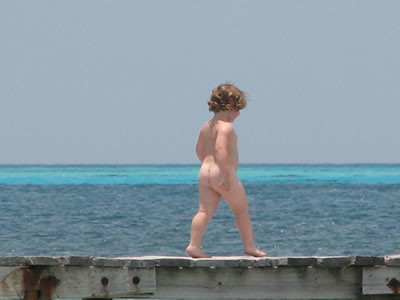 (picture source: flickr.com)
(picture source: flickr.com)
Real Gurus “Couldn't care less”
The dilemma of an Eastern master in a postmodern world
An interview with Dzongsar Jamyang Khyentse Rinpoche
by Andrew Cohen (Article source: What is enlightenment? magazine)
The enlightened mentor—the guru—has throughout the ages been that great being who willingly does battle with the powerful forces of ignorance that reside in the depths of the human soul. Through his or her living presence, the guru catalyzes extraordinary transformation, guiding human beings from darkness to light, from the limitations of a small and petty existence to the free and infinite expanses of illuminated awareness. Few modern teachers are as qualified to claim the title of guru as Dzongsar Jamyang Khyentse Rinpoche, heir to a long and illustrious lineage of enlightened Buddhist masters. In this recent interview with spiritual teacher and WIE editor in chief Andrew Cohen, Dzongsar Rinpoche candidly discusses what it takes to fulfill his role as guru and explains why the greatest challenge, East or West, is to have the courage to completely disengage from public opinion and attain “a genuine indifference.”
ANDREW COHEN: You are uniquely straddling two worlds: you were born a tulku and had traditional Buddhist education and training in your own culture, but you have spent a lot of time in the West and have also become a well-known filmmaker. So you seem to have one foot in the premodern world and one foot in the postmodern world. You are quite an independent thinker, forging your own path as one of the pioneers in this very interesting time of transition in the evolution and development of the dharma, of East-meets-West spirituality. So I would like to talk with you about what it means to be a guru at this point in history.
When someone takes on a guru, as is clearly illustrated in Words of My Perfect Teacher, it's a deep and serious engagement. And in the film, you speak very directly about the challenge that relationship poses to the ego, to the separate sense of self. The guru represents the dissolution of the ego, and yet Westerners of our generation, more often than not, don't seem to be prepared for this. And while you have said that there are many different methods for finding enlightenment, for discovering “the guru within,” one of the quickest and easiest is to receive the blessings of the teacher. Why is this? What actually is the role of the guru, and why is it so vital?
DZONGSAR Rinpoche: The reason why the guru is the most effective is because the guru is someone you are supposed to look at as being superior to a human being. But he is also someone you can relate to. A guru is someone who eats pizza, who likes the same pizza that you like. And that's quite important because at the same time that he is someone you can relate to, he is the one you have consciously or unconsciously hired to destroy yourself!
 (picture source: flickr.com)
(picture source: flickr.com)
COHEN: Could you say what you mean by that?
DZONGSAR: You give up everything and then hire him to destroy your ego. And you pay him body, speech, and mind to do that.
COHEN: When you say “destroy the ego,” that's not a small thing.
DZONGSAR: Yes. That's true.
COHEN: And as we were saying earlier, it seems that the destruction of the ego is an alien concept in postmodern Western culture, which is a nonreligious secular society. In fact, it seems that in postmodern culture, the ego, or the separate self-sense, has become even more powerful as a result of the cultural revolution that began in the sixties. At that time, the emphasis became freedom of the individual and freedom for the individual. And the result is that, unlike in previous times, there was no God above that one had to fear, which in the past had perhaps engendered humility, a bit of healthy fear of something higher than oneself.
So when we in the West discovered enlightenment and then found that in order to attain it, the ego, or the separate self, had to die, this was a very big shock because culturally we had no training or preparation for this whatsoever. Now in the film, Words of My Perfect Teacher, you speak about how you hire the guru to be the assassin, the man or woman you hire to “completely dismantle you.” But how does a teacher succeed in “dismantling” their students' egos in this kind of cultural milieu?
DZONGSAR: It's difficult. This is why defining ego is very important, especially within a culture that doesn't have this kind of background. And I think the classic way of defining the ego is, at the end of the day, the only solution: Ignorance—which is the same as ego—is when you're looking at two, or more than two, ever-changing transitory things, and yet you think that they're one; you think they're independent and permanent. That is ignorance and that is ego.
For instance, if I look at my hand, I make three mistakes. One, I think it's the same hand I had this morning. But that's not true; it has changed. And two, I think there's something called “hand” when there actually isn't because it's a part of a lot of things—my veins, my skin, my blood, all kinds of things.
COHEN: So the point is that there's no such thing as independent existence.
DZONGSAR: Right. And then another mistake I make is not realizing that the existence of my hand actually depends on many things. For instance, the fact that the ceiling hasn't fallen on my hand is the reason why it's moving, why it's there. But I don't think in that way. I think my hand is there because my hand is there.
COHEN: You're talking about what is called “dependent origination,” the understanding that everything that exists depends upon everything else that exists, which depends upon everything else that exists. In this, one sees that one's own self exists as part of this infinitely dependent process in which there is no one who is isolated or separate from the whole. (picture source: flickr.com)
(picture source: flickr.com)
DZONGSAR: Yes, and all this information needs to be transmitted to one who wants to be the victim of the guru.
COHEN: In the movie, you also spoke about how the guru crushes people's pride, as the means to purify them of ego motivations and attachment.
DZONGSAR: Yes, because pride is thinking something that is not necessarily you. For instance, if I asked you, “Are you a man?” you would say, “Yes.” That is confidence, not pride. Now, if I ask, “Are you a superman?” and you say, “Yes,” that may be pride because “super” is only an adjective, and is not imputed. Pride, ego, and ignorance are all synonymous.
COHEN: And you said that the teacher who “crushes your pride and makes this worldly life completely miserable is something that you ask for. He is the assassin, he is the man or woman whom you have hired to completely dismantle you.”
DZONGSAR: You may not realize that's what you're doing, but that's the idea—to dismantle everything: your identity, everything. And it's not like dismantling one big habit. It changes. Let's say today I would like to be stroked. Then a teacher should not stroke me. Or maybe today I would like to be beaten. Then maybe I should be stroked. So that's why this is actually beyond abuse and not abuse. If somebody bites you or beats you and handcuffs you, that's a kind of abuse, isn't it? But what I'm talking about is ultimate abuse. At the same time, abuse phenomena only exist if you are still clinging to transitory phenomena as permanent and real. If you don't, there is nothing to be abused. But that's difficult, really difficult.
COHEN: In that case, the teacher's work would be done.
DZONGSAR: Yes, of course. But the kind of student we're talking about doesn't exist. And that kind of teacher doesn't exist, either. Teachers don't have that kind of courage. I don't have it. I may be a teacher, but I don't have that kind of courage because I love my reputation. Who wants to be referred to as an abuser? I don't. I am a sycophant. I try to go along with what people think. If people think a teacher should shave his head, wear something maroon, walk gently, eat only vegetarian food, be so-called serene, then I'm very tempted to do that. Rajneesh had the guts to have ninety-three Rolls Royces. I call it guts. One Rolls Royce is one thing. Even two or three—but ninety-three is guts! And I don't have the guts, the confidence. I like Rajneesh very much. I like him much better than Krishnamurti. Many of his words are quite good, and I can see why the Westerners would like him.
COHEN: Perhaps the problem with Krishnamurti was that he pretended that he wasn't a guru or a master, although he obviously was. I think this made it very difficult for people.
DZONGSAR: Yes; it was a contradiction.
COHEN: Are you saying, then, that you hold back with your students?
DZONGSAR: I do, always.
COHEN: At the same time, you said in the film that you're an assassin—that that's your job.
DZONGSAR: Yes, in the context that if I am a student's teacher, then that is my job. But I'm not promising I can do it. You know, but I love very much the eight worldly dharmas. I'm like these police undercover cops who are sent into a Mafia family. What I'm supposed to do is really check out these people, but I fall in love with what they do, so I follow what they want. It's difficult. And that comes from attachment to the eight worldly dharmas—attachment to the praise and fear of the criticism. (picture source: flickr.com)
(picture source: flickr.com)
COHEN: But some of the greatest Tibetan gurus have the reputation for being the most fierce, like Marpa, for example. He was the fiercest.
DZONGSAR: Oh, yes, of course. They could do it because they have no agenda. Their only agenda was to enlighten. They didn't care what people said, what other people thought—I call it CCL: couldn't-care-less-ness. That holds the biggest power. But who has it today? No one.
COHEN: One of the most interesting things that was revealed about you in the film was the juxtaposition of the roles you're playing. As a guru in the West, you are working with Western students who, at least in theory, are coming to you for enlightenment, and yet who come from this postmodern context where there's an inherent mistrust of authority. Whereas in Bhutan, thousands and thousands of Bhutanese people have no doubt that you are a living god.
DZONGSAR: I think on both continents I have mastered the art of pretense. I go to Bhutan and I know what to do for them, to do what is most harmonious. Because if I act or say things in Bhutan or in Tibet that I say in the West, I'll be in trouble. Now that is what I was referring to before. I do this because I don't want to lose disciples; I don't want to be criticized. Of course, I can justify those actions by saying, “Oh, it's coming from a good motivation, because I don't want to jeopardize the spiritual path of hundreds of people.”
COHEN: You described in the film how it's very difficult for you to have an authentic relationship with many of your Bhutanese devotees because of the kind of admiration they have for you. But with your Western students, there is the fundamental ego position that feels that “no one is higher than me.” And this also presents difficulty, because for any authentic guru to be able to help a student achieve enlightenment, there has to be the acceptance from the outset that the guru has realized something that the student has not yet realized. Then, of course, there's the tremendous pressure the teacher places on the ego and the student's identification with it. And in Words of My Perfect Teacher, Lesley Ann Patten showed very well how many of your Western students were struggling with these very issues—with the notions of hierarchy and authority, and even with their lack of faith in the possibility of enlightenment itself.
DZONGSAR: Yes, exactly. But in both cultures there is one thing that is similar—it's this culprit: expectation. In Eastern cultures, like in Bhutan, there may be blind devotion, but they all have an expectation. In the Western culture, they may be skeptical and secular, but there's also expectation. And that expectation, while it may manifest differently, fundamentally has only one nature and that is that everybody wants to be happy. And that is where things go wrong.
To be a Buddhist and to be practicing dharma have nothing to do with being happy. If you're practicing the dharma to be happy, then it's like you're doing the opposite, just the opposite. Enlightenment has nothing to do with happiness or unhappiness. And both cultures come to me to be happy. That really is the source of all the misunderstanding. (picture source: flickr.com)
(picture source: flickr.com)
COHEN: Yes. The goal is to be free from both happiness and unhappiness.
DZONGSAR: Yes, and I have to teach them what to expect. But it's really difficult.
COHEN: The fact that you are in these two different cultures seems to make it challenging for you to be simply and authentically yourself. Because on the one hand, in Bhutan, there is a certain role you need to assume, which you've accepted—that's your dharma, your destiny. But there are restrictions associated with that premodern context. And in the West, because of the postmodern secular context, there are also restrictions. So your own capacity to just be fully and spontaneously yourself, even as a teacher or as a guru, must be inhibited in both cases. Could you speak a little bit about this?
DZONGSAR: This is a very good question. It all goes to tell me that the bottom line is that I need to develop my courage, the courage to learn CCL—“couldn't-care-less-ness.” In the morning, with a little bit of good motivation, I can start teaching. That will accumulate some merit, I'm sure. At least I'm not going around teaching people to blow themselves up or kill infidels. And even teaching I only do when I'm in a spiritual mood. But my job now, my duty is to first develop my “couldn't-care-less-ness.” The bottom line is that I need to learn that; I need to achieve that. Then, even if I receive bad publicity in the West, I couldn't care less. Once I achieve that, then I'll reach a certain level where real genuine compassion is. Until then, everything is a bit deceptive.
--------------------------------------
Technorati: Buddhism Buddha Buddhist Dharma Compassion Wisdom Religion Meditation Zen Philosophy Spirituality Inspiration Peace Insight
“Sariputra, if there are people who have already made the vow, who now make the vow, or who are about to make the vow, ‘I desire to be born in Amitabha’s country,’ these people, whether born in the past, now being born, or to be born in the future, all will irreversibly attain to anuttarasamyaksambodhi. Therefore, Sariputra, all good men and good women, if they are among those who have faith, should make the vow, ‘I will be born in that country.’”
~ Amitabha Sutra
When I obtain the Buddhahood, any being of the boundless and inconceivable Buddha-worlds of the ten quarters whose body if be touched by the rays of my splendour should not make his body and mind gentle and peaceful, in such a state that he is far more sublime than the gods and men, then may I not attain the enlightenment.
~ Amitabha Buddha's Thirty-Third Vow
Tuesday, July 10, 2007
Real Gurus “Couldn't care less”
Posted by
Colin
at
7/10/2007 09:43:00 PM
![]()
Labels: destroy the ego, Dzongsar Jamyang Khyentse Rinpoche, Enlightenment, interview, Real Gurus “Couldn't care less”
Subscribe to:
Post Comments (Atom)



No comments:
Post a Comment
Share your views on the post...